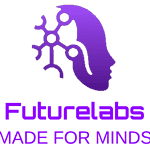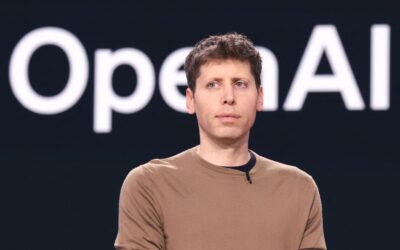PETER NORVIG.
Peter Norvig is one of the most influential pioneers in the field of artificial intelligence (AI) and has played a crucial role in both its theoretical development and practical applications. Throughout his career, he has significantly contributed to the understanding and development of advanced AI techniques, such as machine learning, probabilistic programming, and search algorithms in artificial intelligence. Additionally, he has been a key advocate for the accessibility of AI through his work in education, outreach, and leadership in innovative projects within high-impact tech companies.
Norvig was born on December 14, 1956, in the United States. From an early age, he showed an inclination toward technology and programming. He studied at Brown University, where he earned his Bachelor’s degree in Applied Mathematics in 1978. Later, he completed his PhD in Computer Science at the University of California, Berkeley, in 1986. During his academic training, Norvig became deeply interested in artificial intelligence, a discipline that was emerging as a fascinating field, though still limited in terms of capabilities and real-world applications. At that time, AI was far from the capabilities it would show in the following decades, but Norvig was determined to contribute to its advancement.
One of the most important milestones in Norvig’s career was his collaboration with Stuart J. Russell, with whom he co-authored the book Artificial Intelligence: A Modern Approach, first published in 1995. This work is undoubtedly one of the most influential textbooks in the field of AI, having been adopted by over 1,500 universities worldwide. Through this book, Norvig and Russell provided a comprehensive and accessible exposition of AI fundamentals, from problem-solving and search algorithms to planning, probabilistic reasoning, machine learning, and natural language processing. The holistic and detailed approach of this book has educated generations of researchers, engineers, and students in the field of artificial intelligence, solidifying its reputation as an essential work for anyone seeking a rigorous understanding of AI. What makes this work so influential is its ability to balance theory with practice, and its extensive coverage of both classical and emerging AI topics.
In addition to his contribution to academic literature, Norvig has played a crucial role in the tech industry, particularly in his role as Director of Research and later Director of Computer Science at Google. He joined Google in 2001, at a time when the company was rapidly growing and exploring new areas of technological innovation. During his time at Google, Norvig worked on several important projects related to the development of search algorithms, natural language processing, and machine learning. His work helped refine Google’s search systems, improving the way information is organized and presented to users. He also contributed to the creation of new tools and technologies that used artificial intelligence to enhance user experience and operational efficiency within the company.
One of Norvig’s most notable areas of research has been natural language processing (NLP), a branch of AI focused on the interaction between computers and human language. His work in this area has led to significant advances in understanding and automatically generating language, contributing to improvements in products like Google Translate and advanced language-based search systems. At the core of this field is the ability of machines to understand the nuances of human language, such as context, ambiguity, and intent, which has been key to making AI more accessible and useful in everyday life.
Norvig has also been a strong advocate for AI as an educational tool and has played a key role in promoting AI education at scale. Together with Professor Sebastian Thrun, he launched the first massive open online course (MOOC) on AI through Stanford University’s learning platform in 2011. This “Introduction to Artificial Intelligence” course attracted more than 160,000 students from around the world, marking the beginning of a revolution in online education and the democratization of access to AI learning. The experience of teaching so many students and receiving direct feedback on learning and teaching helped Norvig refine his pedagogical approach, recognizing the importance of making complex AI concepts accessible and understandable to a broad and diverse audience.
Norvig is also known for his advocacy of a data-driven approach to AI. In a famous conference, Norvig and his colleague Fernando Pereira argued that “more data is better than more sophisticated algorithms.” This idea reflects one of the key trends in the contemporary development of AI: as massive data has become more accessible thanks to the Internet and digital storage, machine learning algorithms have greatly improved, simply by feeding machines large amounts of data to learn patterns and structures that were not obvious with more limited data. This approach has been crucial to the rise of deep learning-based AI, which has led to advancements in fields like speech recognition, computer vision, and machine translation.
Throughout his career, Norvig has been an influential voice in the ethical discussions surrounding AI. Recognizing the challenges and potential risks posed by advanced AI, he has advocated for a responsible approach to the development and deployment of this technology. He has emphasized the importance of designing AI systems that are transparent, understandable, and aligned with human values, calling for development that is in line with the welfare of society. In various talks and writings, Norvig has expressed concerns about issues such as bias in AI algorithms, data privacy, and the impact of automation on employment. These topics have been integral to the contemporary debate on AI, and Norvig’s perspective has been invaluable in promoting an ethical AI that benefits humanity.
In recognition of his contributions to the field of artificial intelligence, Norvig has received several awards and distinctions throughout his career. He has been named a member of the Association for the Advancement of Artificial Intelligence (AAAI) and the Association for Computing Machinery (ACM), two of the most prestigious organizations in the field of computer science and AI. He has also actively participated in international conferences, publishing numerous research papers and collaborating with some of the leading AI scientists worldwide.
In summary, Peter Norvig has been a central figure in the development of artificial intelligence, both in its theoretical dimension and in its practical application. His contributions to AI education and outreach, his work in the tech industry, and his influence on ethical discussions about the future of AI have positioned him as one of the most influential pioneers in the field. Through his data-driven approach, his commitment to open education, and his involvement in projects that have directly improved the lives of millions of people, Norvig has left a lasting mark on modern AI. His work remains a key reference for researchers, engineers, and students seeking to understand and advance in the field of artificial intelligence.po de la inteligencia artificial.






0 Comments